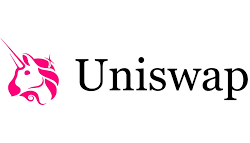Betting, one of the oldest forms of gambling, has undergone significant transformations throughout history. From its humble beginnings in ancient civilizations to the sophisticated online platforms of today, the landscape of Taruhan Judi Bola is a fascinating tale of cultural evolution, technology, and human psychology.
Ancient Origins
The practice of betting dates back thousands of years. Ancient Chinese texts mention gambling as early as 2300 BC, while the Greeks and Romans also had their own betting systems, often tied to sporting events and gladiatorial contests. Dice were among the earliest tools of chance, with archaeological findings suggesting their use in various ancient cultures.
The Rise of Formalized Betting
As societies developed, so did the structure around betting. The introduction of regulated betting systems in the 17th and 18th centuries marked a significant turning point. In England, the Betting Act of 1853 helped to formalize betting practices, establishing rules that ensured fairness and transparency. This era saw the birth of betting shops, where individuals could place wagers on horse races and other events.
The Impact of Technology
The 20th century brought about a technological revolution that would change betting forever. The introduction of the telephone allowed bettors to place wagers remotely, leading to the first wave of telephone betting services. This innovation made betting more accessible and laid the groundwork for the future.
The rise of the internet in the late 1990s transformed the betting landscape once again. Online betting platforms emerged, offering a plethora of betting options, from sports to casino games. This digital revolution brought betting to a global audience, allowing individuals to place bets from the comfort of their homes, 24/7.
The Emergence of Data and Analytics
In recent years, data analytics has taken center stage in the betting industry. Bettors now have access to vast amounts of information about teams, players, and historical performance, allowing them to make more informed decisions. The integration of machine learning algorithms has further refined predictive models, enhancing the accuracy of odds and outcomes.
Moreover, live betting has gained popularity, enabling bettors to place wagers during events. This real-time betting experience not only increases engagement but also capitalizes on the dynamic nature of sports.
Regulatory Changes and Social Responsibility
As betting has become more mainstream, regulatory bodies worldwide have started to implement measures to protect consumers and promote responsible gambling. Many jurisdictions now require operators to offer tools that help players manage their gambling habits, such as deposit limits and self-exclusion options. The focus on social responsibility reflects a growing awareness of the potential risks associated with betting.
The Future of Betting
Looking ahead, the betting industry is poised for continued growth and innovation. The rise of cryptocurrencies and blockchain technology promises to introduce even more transparency and security into betting transactions. Virtual reality and augmented reality may also reshape the betting experience, allowing users to immerse themselves in virtual casinos or racetracks.
Additionally, the integration of artificial intelligence will likely enhance customer experiences, providing personalized recommendations and real-time insights.
Conclusion
Betting has come a long way since its ancient origins. Today, it stands as a complex blend of tradition, technology, and human behavior. As the industry continues to evolve, it will undoubtedly adapt to societal changes, technological advancements, and regulatory frameworks, ensuring that the age-old practice of betting remains relevant in the modern world. Whether for entertainment, competition, or financial gain, betting will continue to be an integral part of human culture for years to come.




